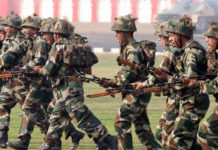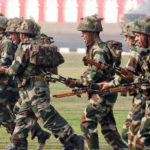On the ballot: On the general election to the 18th Lok Sabha
The Election Commission must ensure a free and fair democratic process
The general election to the 18th Lok Sabha will be spread over seven phases and 44 days, with the counting of votes scheduled for June 4. The announcement marks a formal beginning but campaigning has become a perennial affair of Indian politics as if to vindicate the ruling BJP’s call for ‘one nation, one poll’, which it argues will reduce the time spent in electioneering. Simultaneous elections and other contentious questions form the backdrop for the long-drawn election season, the largest such exercise anywhere in the world. While India has enough reasons to be proud of its vibrant democracy and exhilarating diversity, an honest introspection can be sobering. From 2019, India has witnessed rapid and massive changes, the good and the bad. The BJP, naturally, is trying to present its second term as an era of progress and prosperity. While its propaganda has been blaring, the Opposition’s attempts to critique it have been feeble. This uneven playing field is largely the outcome of the BJP’s misuse of state power to influence other parties and actors in the political process such as the media, the bureaucracy and the private sector. Inherent problems weaken the Opposition further. The fact that the principal Opposition party’s bank account is restricted on the basis of an alleged procedural lapse, which is a minor one even if proven, says a lot about how state agencies are tilting the scales.
The revelations so far around the electoral bond scheme, which was declared unconstitutional by the Supreme Court of India, also paint a deeply disturbing pattern of shrinking fairness in the election process. Given the circumstances, the Election Commission of India (ECI) has a difficult job in ensuring that the poll process is not only fair but also seen as such. This challenge has been complicated by the abrupt exit of an ECI member, and two hurried appointments. The process of appointing the members of the ECI remains controversial, given the complete control that the political executive has given itself in it. Opposition leaders have questioned the need for such a prolonged poll schedule. In West Bengal, where the BJP is pulling out all stops, polls have been staggered across all seven phases. While the ECI is justified in its defence of the electronic voting machine, it needs to do more to ensure public trust in them. In the conflict between the claim of a right to privacy by donors and the voter’s right to information, the ECI’s equivocation is unwarranted, particularly after the Court has settled the question. The ECI must know that all eyes are on it when it comes to assessing the biggest democratic exercise on the planet.

















